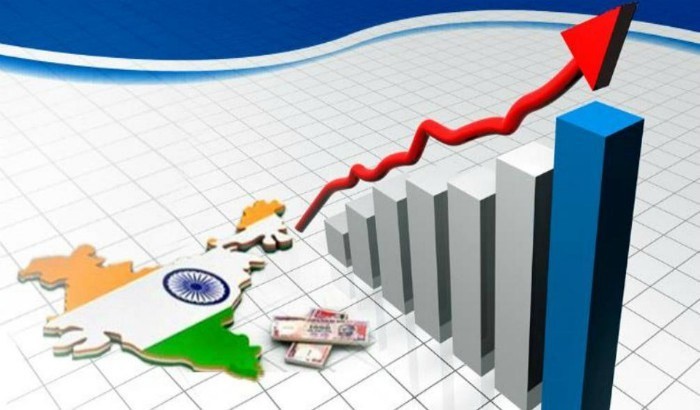
The World Bank retained its forecast of India's growth rate at 7.5 per cent for the current financial year. In its Global Economic Prospects report, the World Bank also said growth rate is expected to remain the same for the next two fiscals.
"In India, growth is projected at 7.5 per cent in FY2019/20 (April 1, 2019 to March 31, 2020), unchanged from the previous forecast, and to stay at this pace through the next two fiscal years," the World Bank said in its report.
According to the report, private consumption and investment will benefit from strengthening credit growth amid more accommodative monetary policy, with inflation having fallen below the Reserve Bank of India's target. Support from delays in planned fiscal consolidation at the central level should partially offset the effects of political uncertainty around elections, it added.
The outlook for South Asia over the forecast horizon is expected to remain solid, with regional GDP expected to expand to 6.9 per cent in 2019, 0.2 percentage point down from previous projections owing to downward revisions for Pakistan, but to pick up to 7 per cent in 2020 and 7.1 per cent in 2021.
The contribution of exports to economic activity is expected to remain weak with moderate global trade growth, the report mentioned.
The World Bank, in its report, observed that the main domestic risks to the outlook include a re-escalation of political turbulence amid elections in some countries (Afghanistan and Sri Lanka); fiscal slippages with expanding public spending; and a resurgence of non-bank financial sector funding issues.
The Washington-based lender noted that "military skirmishes" between major South Asian countries in mid-February remained contained, and economic repercussions were minor. However, re-escalation of tensions between the two countries could increase uncertainty, depress confidence, and weigh on investment in the region - an apparent reference to the Pulwama terror attack and the retaliatory air strikes carried out by the Indian Air Force (IAF) in Pakistan's Balakot.
It further said the Goods and Services Tax (GST) regime is still in the process of being fully established, creating some uncertainty about projections of government revenues.
In Sri Lanka, the World Bank said a rise in political uncertainty in the months leading up to presidential and parliamentary elections, which will take place in 2019 and 2020, respectively, could weigh on business confidence. In addition, recent security-related incidents could dampen investor sentiment and perceptions.
Another factor accounted for by the World Bank is uncertainty about the Brexit process, which possesses the ability to create a risk to some South Asian economies which have preferential trade agreements or generalised system of preferences with the European Union and significant exports to the UK, including India, Bangladesh, Pakistan, and Sri Lanka. A no-deal Brexit could have a significant impact on exports of those countries to the UK in the absence of new trade agreements, it contended.


.jpeg)

